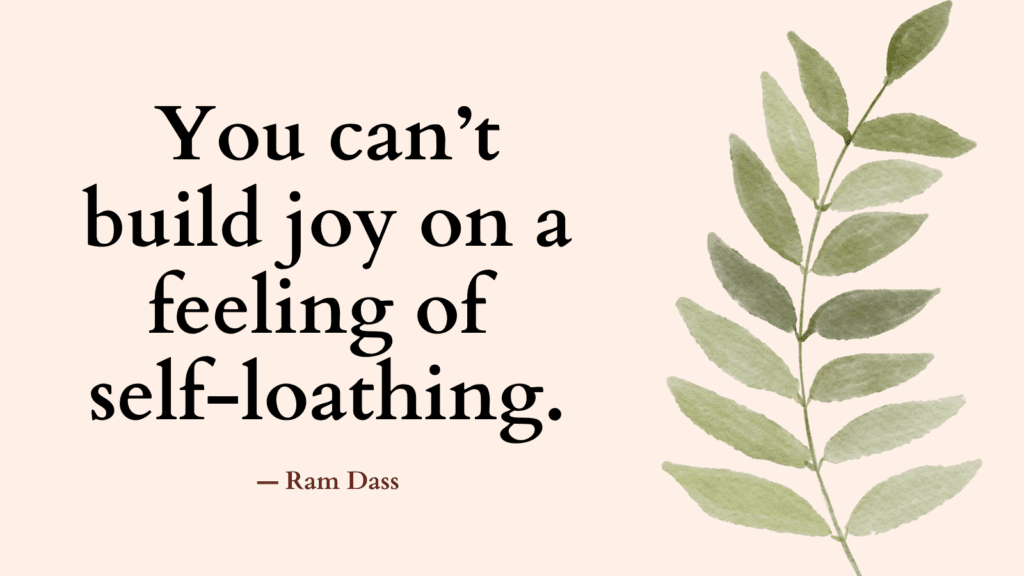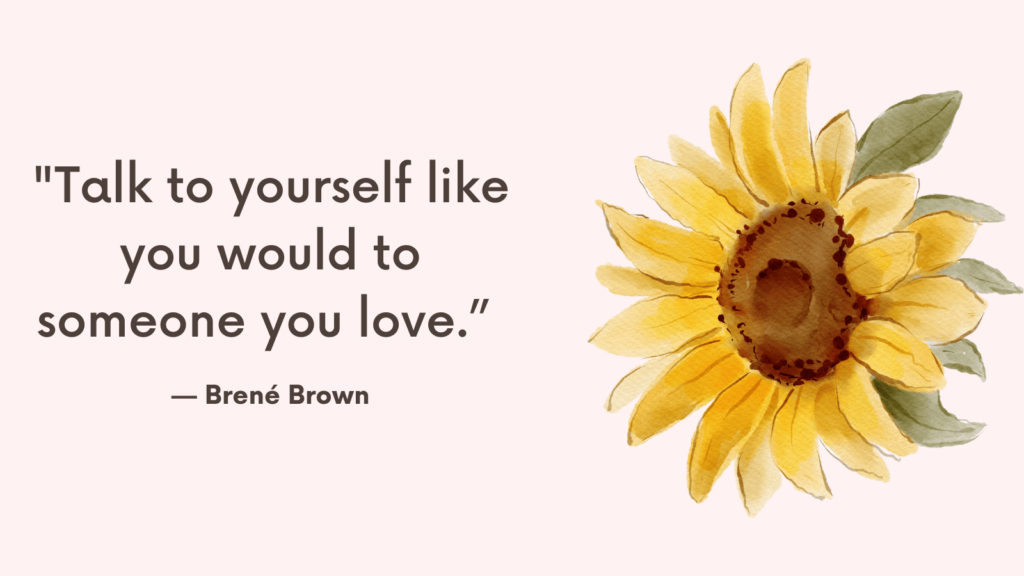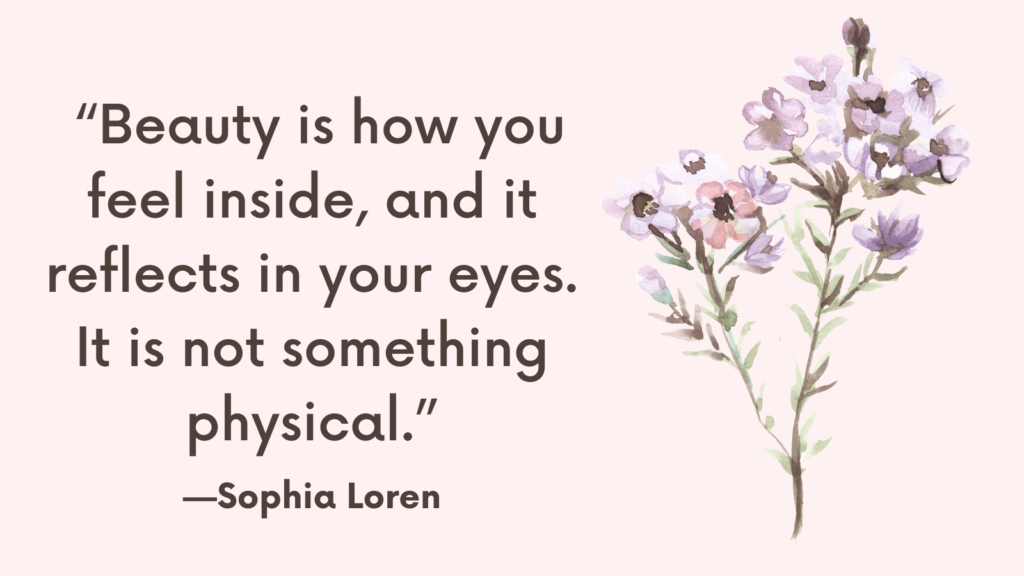Today, you’re going to learn how to stop wallowing self pity and stop feeling sorry for yourself.
It’s only normal to experience pain and sadness in your life.
It’s a healthy emotion to help you cope with the situation.
However, dwelling on your sadness and misfortune can be self-destructive.
When you’re pitying yourself, you usually think that your problems are worse than anyone else’s,
That you have bad luck,
That no one truly understands how hard your life is and in general, you often complain about things not being fair. (*)
Why Do people Wallow In Self-Pity?
1. Self-Pity as a Defense Mechanism
Self-pity is often used by people as a defense mechanism to protect them from future problems.
In other words, self-pity buys you time.
You’ll be able to delay any circumstances that will force you to face your fears and you’ll be able to avoid taking responsibility for your actions.
Self-pity is also used by people to gain attention in the hope of attracting some assistance.
Like when you complain to your boss about how much work you have to do, in hope that less will be expected from you.
However, that’s not how things work. Feeling sorry for yourself, prevent you from taking action or moving forward which can make things worse.
More importantly, no one is going to swoop into your life and make sure you’re dealt a fair life.
Related: Healing Your Inner Child: 11 Defense Mechanisms and How to Overcome Them
2. Negativity Bias
Although our life experiences are usually a rich mix of positive and negative, we tend to remember negative events more strongly than positive ones.
It can be very difficult to conjure up memories and feelings of happiness when we’re in distress.
This is explained by evolutionary biologists as a “negativity bias” that makes us especially alert to danger and threat.
While this response is essential to our survival when we’re in real danger, it can become a source of suffering when we’re not.
Techniques, such as deep breathing, mindfulness, and meditation can help you retrain your nervous systems away from this fight-or-flight response.
3. Messages From The Media
Many people wake up in the morning feeling contented, then, after ten minutes of checking their phone find themselves feeling jealous and out of sorts.
Social activist Jerry Mander hypothesizes that media is deliberately designed to trigger self-hatred, negative body image through advertising drummed up to offer the cure.
While it’s difficult to avoid these messages, we can question them and choose which messages we adopt as our own beliefs and which we hold more loosely.
Related: How to Improve Your Body Image? 12 Steps to Positive Body Image
The Problem With Self-Pity
Experiencing pain and sadness should be enough to deal with without adding self-pity.
In fact, indulging in self-pity allows the unfortunate incident to take away even more in the following ways:
1. It wastes your time and energy
Feeling sorry for yourself drains your energy, and wastes your time because it does nothing to change the situation.
In fact, self-pity holds you from moving forward and taking action sooner, which can make things even worse.
2. It invites more negative emotions
Misery loves company.
Once you allow self-pity to take over, a flurry of other negative emotions swoops in.
You start feeling anger and resentment toward the present situation along with other negative feelings.
3. It brings on more problems
When you’re too indulged in feeling sorry for yourself, it’s unlikely you’ll perform at your best.
This might bring on more problems and failures which in turn pushed you to pity yourself even more.
It’s a vicious circle.
4. It causes you to overlook the blessings in your life
No matter how many blessings you have in your life, when you’re feeling sorry for yourself, one single problem can easily overshadow any positive in your life.
This takes away your peace of mind and robs you of your joy.
5. It interferes with relationships
Pitying yourself isn’t an attractive trait when it comes to relationships.
Complaining about your life might drive people away.
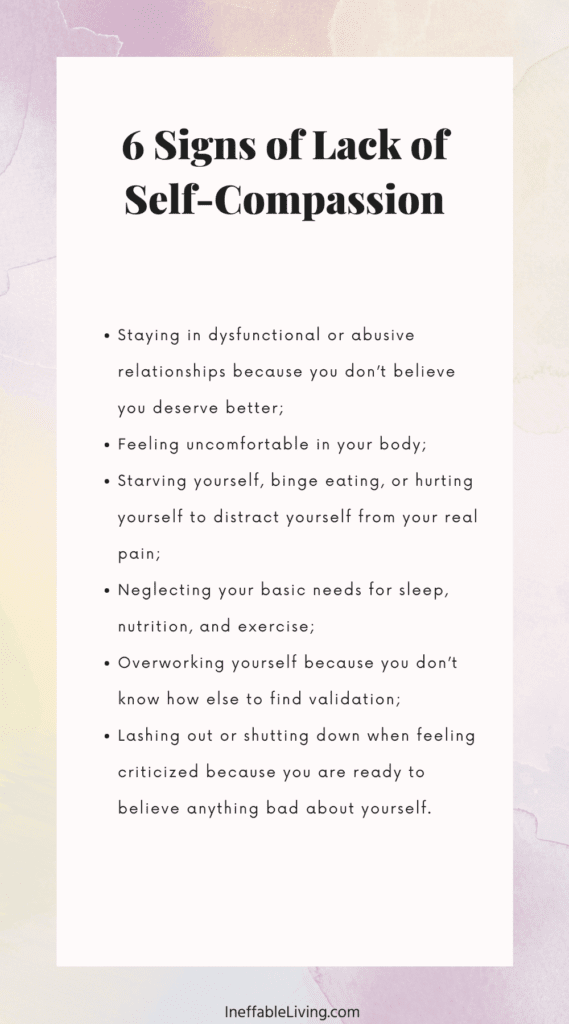
Top 10 Ways To Stop Wallowing In Self-Pity
#1. Take Responsibility For Your Life
Before you can make a bungee jump, you have to sign a waiver.
This waiver is a document that says that you acknowledge the risks of what you’re about to do, that you and you alone have made the decision to do this, and that you and you alone are responsible for the outcome.
You sign away your right to sue or complain.
In the same way, you and you alone are responsible for your own life. There is no one to sue, no one to blame. You make your decisions and you live with the outcomes of these decisions.
Sign a waiver saying that you take responsibility for your life and set yourself and others free.
Related: Best Edith Eger Quotes (“The Gift”): 12 Invaluable Lessons to Set Yourself Free
#2. Open The Door to Your Feelings
Research found that emodiversity — the whole spectrum of human emotions— plays a key role in our overall health and well-being, including emotions we usually consider “negative,” such as anger and sadness.
Anger, for example, alerts you to injustice or someone or something blocking your goals and motivates you to confront injustice. However, anger becomes counter-productive when it doesn’t inspire you to take effective action.
Mindfulness helps you sit down with your emotions without getting defined by them.
Related: Emotional Intelligence: Top 20 Strategies to Become More Emotional Intelligent
#3. Change your self-pity thoughts
Changing your thoughts and changing the way you look at a situation, isn’t always easy.
But by becoming aware of your way of thinking, you’ll be able to rationalize your thoughts.
Try asking yourself the following questions:
Is there another way I could view the situation?
There’s a good and a bad side to every situation. An unfortunate incident can turn out to be a blessing if there’s something to be learned.
What advice could I give a loved one had he been going through such a situation?
You’re likely to find it easier to give someone else advice than to give it to yourself. If you tell yourself that you have bad luck, it’s unlikely you’ll tell someone else the same.
You’ll probably encourage them and offer them kind words such as “You’ll figure this out, it shall pass”. Take your own advice and apply it to your problem.
Replacing your negative thoughts with more realistic ones will take practice and hard work, but it’s definitely effective in decreasing self-pity.
Related: 10 Powerful Techniques To Control Your Negative Thoughts
#4. Question The Stories You Were Told About Yourself
The stories others tell about us can shape our experiences, whether they were positive or negative.
Sometimes these stories, aren’t even stories. They are ideas conveyed through nonverbal signals, such as body language or facial expressions or tone of voice.
These stories don’t just include the ones told by our primary caregivers.
Today, through social media, there is more opportunity than ever before to learn what others think of us and too often it’s not positive or affirming.
About 50% of children had experienced at least one kind of cyberbullying in their lifetime, according to a report published in February by the European Commission’s Joint Research Centre (JRC). 20 percent of those who’ve been targeted contemplate suicide, and one in ten attempts it.
Related: How to Challenge and Change Your Negative Core Beliefs?
#5. Do things that make it hard to feel sorry for yourself
It’s hard to feel sorry for yourself when you’re doing something you enjoy, like going skydiving, or surfing, or hiking with friends, or volunteering, or any other activity you enjoy doing…
Making a conscious effort to do something contrary to how you feel, can make a big difference and keep any self-pity thoughts away.
Related: 45 Easy Self Care Day Ideas at Home for a Healthy Mind, Body & Soul
#6. Create a gratitude list
Indulging in feeling sorry for yourself prevents you from seeing the blessings in your life.
On the other hand, it’s hard to pity yourself when you’re feeling grateful.
Create a list of good things that happened to you in your life and the good things you have in your life.
You’ll realize then how small your problems are when compared to the great blessings in your life.
Studies have shown that people who feel gratitude have better immune systems and experience fewer aches and pain compared to people who focus on their burdens.
Gratitude also leads to more positive emotions, brings more pleasure on a daily basis, and improves social relationships.
In fact, grateful people are more willing to forgive and help others which helps strengthen their relationships. (*)
Related: Daily Gratitude Ideas: 10 Ways to Practice Gratitude Every Day
Gratitude Meditation
1. Find a quiet space where you will not be interrupted, and sit in a comfortable position.
2. Gently close your eyes and take a slow, deep breath into your belly and feel it expand as you inhale and grow smaller as you exhale.
3. Take a few moments to mentally scan your body for any area of tension, relax that area and release the tension, breathing it out.
4. Notice any fear, anger, jealousy, or judgment and allowing them to flow out with each breath out.
5. As thoughts or memories enter your mind, simply allow them to flow out with the breath.
6. Now that your body, emotions, and thoughts are a little clearer, begin to focus on experiences, people, or things in your life for which you feel grateful.
7. Consider the people you know who enrich your life, those who smile at you and cheer you on, those who support you when you need a shoulder or a hand.
8. When you finish, notice the feeling of your body and breath. Just notice without judging.
#7. Help others
It’s hard for you to indulge in self-pity when you’re busy helping others.
Helping those who lack basic needs such as food, shelter, and good health will help you realize how small your problems are.
Related: The Art of Validation: How to Comfort and Support Someone Without Giving Advice?
#8. Practice Self-Love
Self-love is an unfolding process rather than not a goal with a fixed end point.
In fact, we are challenged every day to act lovingly on our own behalf.
This can involve care of the body and mind, enough self-respect to walk away from toxic relationships and stand up for ourselves, compassionate self-talk when we can’t fit into our favorite pair of jeans or when we make a mistake. These are all ways of showing ourselves love.
Real love is not about letting yourself off the hook or encouraging you to ignore your problems or deny your mistakes. It’s about acknowledging these and still opting to love yourself.
Related: Self-Love Journey: How to Start Loving Yourself?
#9. Practice Self-Compassion
Self-compassion is one of the main skills of self-love.
Psychologist Kristin Neff (Self-Compassion.org) reports on research that suggests while self-criticism can increase blood pressure and cortisol – the stress hormone, self-compassion triggers the release of oxytocin, the “bonding hormone,” that helps increase feelings of trust, calm, and generosity.
The best way to cultivate self-compassion is through mindfulness.
By focusing on your breath as you draw it in and release it, you open the space between your thoughts and emotions and your capacity to relate to yourself with compassion.

#10. Take Charge of Your Own Happiness
No one and nothing can make “happiness” happen for you.
You need to stop looking on the outside and turn inward. You need to acknowledge that only you can be held responsible for your happiness or the lack thereof.
This may be painful to face, but it can also be empowering. This means that you don’t have to wait for anything or anyone to be happy.
Related: How To Find Inner Happiness And Become Your Best Self?
Conclusion
Self-pity is one of the bad habits that hold people from reaching their potential.
Like everything associated with change, quitting self-pity is going to take time and practice.
And the more you do it, the stronger mentally you become.
FAQ
Do you have to love yourself before you can love another?
Many people who are hard on themselves love their family and friends deeply.
But although they are usually loved in return, they might have difficulty in receiving that love.
It is also hard to sustain love for another over the long haul unless we cultivate a sense of inner abundance and sufficiency.
Feeling incomplete inside ourselves, love for another can become a search for others to complete us and give us reassurance, affirmation of our worth, and approval.
However, we can’t receive from others what we are unable to give to ourselves.
How do you know you’re growing more loving of yourself?
Your efforts to cultivate self-love, whether through self-care, journaling, or mindfulness likely won’t show results in the time you dedicate to practice self-love each day.
Rather, they will show in your life when you make a mistake, when you face adversity, when you’re tempted to compare yourself to another – and this is where it counts.
Should you regard childhood traumas as gifts?
Although our childhood traumas have made us into the person we are today and although we learn a lot by overcoming them, you don’t have to pretend that you’re grateful for having lived painful experiences.
Zen teacher Roshi Joan Halifax suggests, thinking of childhood traumas “as givens, not gifts.”
When something is given, we don’t have to deny it or ignore it. We begin by acknowledging it, and then figuring out how we can enjoy the best life possible going forward.
Related: Resolving Childhood Trauma In Adults: 9 Therapy Approaches to Deal With Childhood Trauma
FREE Printable Self-Love Worksheets (PDF)
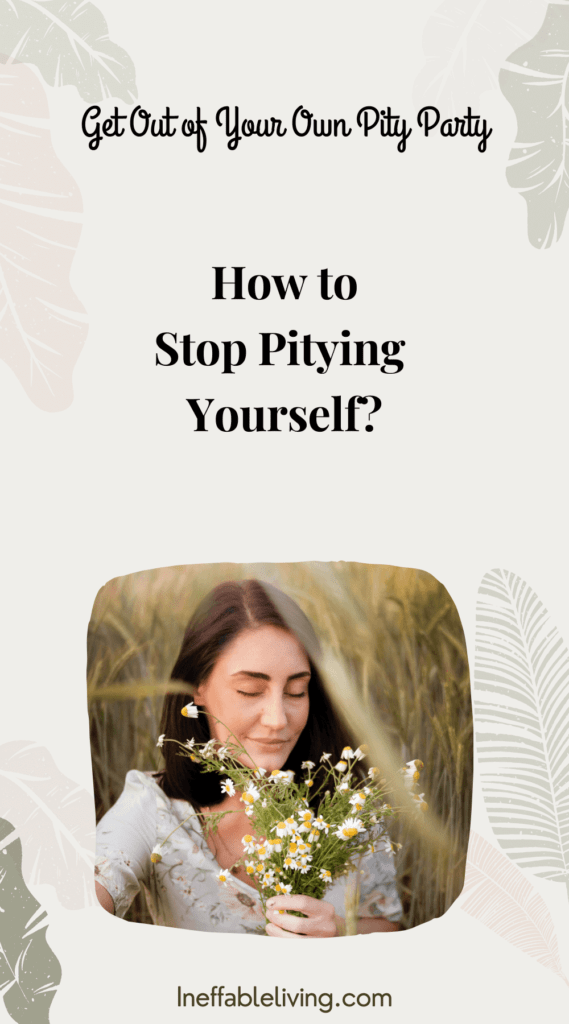
Resources
Portions of this article were adapted from the book 13 Things Mentally Strong People Don’t Do, © 2013 by Amy Morin. All rights reserved.
Portions of this article were adapted from the book Real Love: The Art of Mindful Connection, © 2017 by Sharon Salzberg. All rights reserved.
